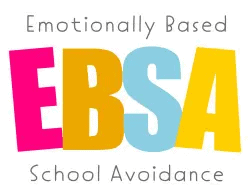
Emotionally Based School Avoidance (EBSA) is a widely used term to describe children who are experiencing difficulties attending school related to their social, emotional, or psychological wellbeing. EBSA is not a diagnosis and instead refers to a pattern of behaviour or a coping strategy the child is using to manage how they are feeling. EBSA can therefore apply to children with a wide range of needs. Developing an understanding of each individual child and the underlying functions of their school non-attendance is important in identifying how to support them. Evidence shows us that positive relationships and a sense of belongingness are protective factors for EBSA. EBSA occurs along a spectrum of need, from occasional non-attendance or non-engagement, to persistent or complete absence from school. This guidance and the associated resources aim to support schools with early identification and intervention, before EBSA becomes entrenched.
Guidance Document
This guidance document will help school staff to develop their understanding of EBSA and will signpost to recent research in this area. The document explores several different frameworks that will support those working with children experiencing EBSA to understand and respond to the underlying functions of their school non-attendance. The guidance document also provides an in-depth discussion of “what helps” and how to implement this support in your school.
Download here
EBSA Pathway
This document is designed to support schools and other professionals to understand their joint responsibilities with regard to the support for young people who are finding it difficult to attend school due to emotional difficulties.
It should support schools to access the appropriate support for young people at the right time and is designed to promote early intervention prior to EBSA difficulties becoming entrenched. It should be used alongside the Guidance document and resources shared below.
Download here
EBSA Audit
This tool is designed to help schools reflect on and evaluate their current practice in terms of support EBSA, and in the areas that can help children with EBSA feel safe and confident at school.
Download here
Resources for Schools
The following resources have been selected by the Educational Psychology Service to provide a toolkit for schools to use when working with children experiencing EBSA. The resources may be used to support staff discussions, whilst working with children experiencing EBSA and their families, or in collaboration with external professionals. All of the resources presented here are evidence-based and focus on a holistic view of what might be going on for the child. If you feel that you would like some additional support understanding or using the resource, or if you don’t feel you have found what your looking for, please speak to your school’s link Educational Psychologist, who can signpost you to other recommended tools.
Information Gathering
EBSA can occur as a result of a wide range of individual or systemic factors, and to meet a range of underlying needs. These tools are designed to support adults working with a child to explore and understand what factors might be contributing to a child’s difficulties attending or engaging with school.
School Wellbeing Cards – (physical resource to be shared with schools)
Checklist for Attendance Tracking and Support (CATS)
Mapping the Landscape of your school primary
Mapping the Landscape Secondary
Person Centred Planning
These resources are designed to help support adults in school to work with a child to identify what might help them to address their difficulties with attendance.
Examples of Solution Focused Questions
Reintegration Plans
These resources are to support in the development of positive and achievable reintegration plans when working towards increased attendance or engagement.
Example Traffic Light Reintegration Plan
Sunday Evening Plan - Tina Rae
Transition checklist for schools
EBSA Support Plan with Visuals
Addressing Underlying Needs
EBSA is not a diagnosis and can be experienced by children with a wide range of underlying needs. These resources might be helpful once you have completed the information gathering and person-centred planning stages and have identified the barriers to the child’s attendance. Please discuss additional resources with your school’s link Educational Psychologist.
Supporting Executive Functioning in the Classroom
Blank CBT workbook (adolescent)
SOLUTION FOCUSED PUPIL FEEDBACK SHEETS